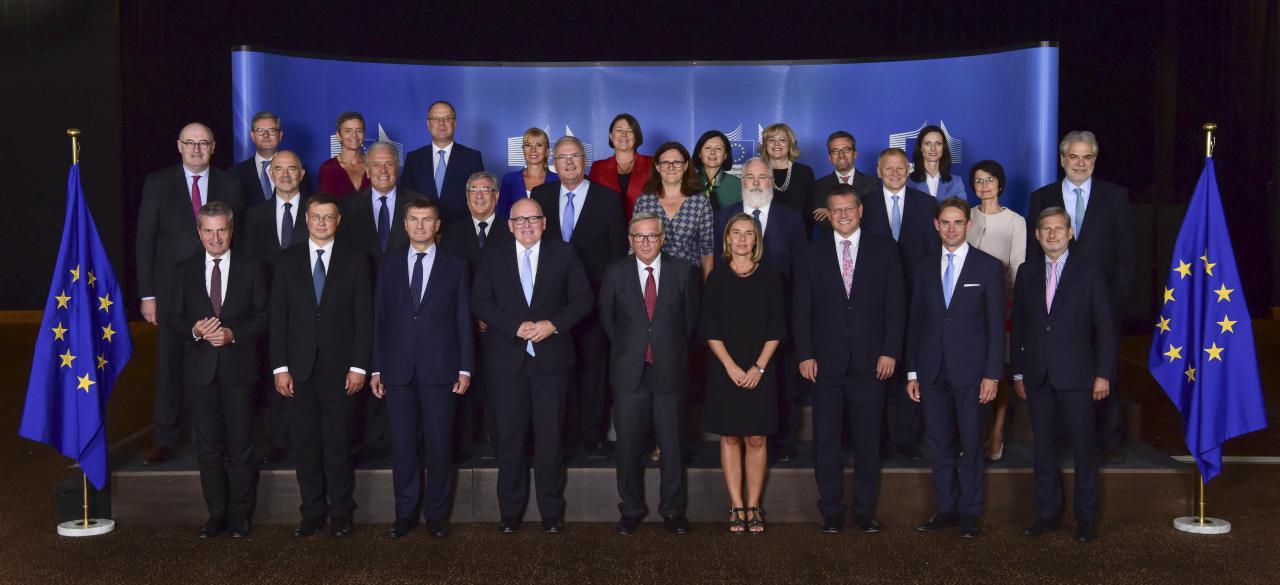I am an American soldier.
I am a warrior and a member of a team.
(…)
I am a guardian of freedom and the American way of life.
/The Soldier’s Creed/
American soldiers know this by heart. They learn the Creed during basic training, they live and die according to it. And, by the way, they are proud of it.
This is (and was) the exact purpose of the “American way of life” expression. To create a sense of unity, common understanding, or brotherhood, if you like it, amongst the many ethnic groups of the United States.
The term is much younger than the US. When everything was going well (independence, economic prosperity, social stability) it came just naturally that it was a good thing to be American and one could be proud of it. In the 1930s, on the other hand, the US needed a guiding mythology, a national ethos, because the “American Dream” (the sense that you can achieve anything if you are working hard, regardless of your background) seemed to fall apart. The people of the US needed something that separated them from the rest of the world.
The term “the American Way of Life” was popularized in this period. It didn’t mean that you had to forget your religious or ethnic background. On the contrary, you and everything you represented, were welcome as long as you adhered to a simple set of values (like accepting democracy or believing in the freedom of enterprise). You could eat your daily dose of pierogi without facing criticism.
But what about “the European Way of Life”?
Euronews ran an article on the fact, that it was not Ursula von der Leyen, but actually Manfred Weber who used the phrase for the first time. According to an EPP spokesperson, for Weber “the European Way of Life made reference to the values European societies are based on and which should be defended, like the fundamental freedoms, democracy, the rule of law, freedom of the press, the ban on the death penalty, the social market economy, which balances the economy with a high standard of social rights, equality of men and women”.
The spokesperson also said that all these values came from our history, from Judeo-Christian values, but also from the philosophical tradition and the great thinkers of the Enlightenment and that they made the European Way of Life so different from the rest of the world.
But this (Weber being the first) is only partially true.
The Bertelsmann Stiftung published a 200+ page study with the exact same title already in 2011 with contributors like Joschka Fisher, Wolfgang Schüssel and Guy Verhofstadt. (In light of this it’s quite funny that Mr. Verhofstadt was among the firsts to claim that the term made him uncomfortable.) None of them can be accused with nationalism or anti-EU sentiments. Nor can you accuse the Bertelsmann Stiftung with that: even though one can argue about the due or undue influence it has on German domestic politics, the foundation is considered liberal or even more, neolibertarian.
The book itself is a summary of the achievements of the European Union and a set of dreams about the then future. In three chapters devoted to Europe’s democracy, economy and values, the experts at the Bertelsmann Stiftung came up with stimulating ideas and make a number of specific recommendations. The contributors made the point that crises have always been a turning point to the European project and have repeatedly presented new opportunities.
And (though Wikipedia cannot really be considered an authentic source), it’s article on Western culture contains the term “European ways of life”, in the section referring to the Late Middle Ages when Europe started to look outward and started to spread it’s social-political-economic system around the world. Yes, it is in plural, but one shouldn’t forget the fact that in the Middle Ages there was no real unity in Europe, so singular would be an exaggeration.
On the other hand, there were many similarities, including feudalism. Just like in the Europe of today: differences and similarities that together constructed the phenomenon we call “Medieval Europe”. (The term “Middle Ages” itself has a very European foundation, too, since it is valid only regarding Europe. There were no “Middle Ages” beyond the borders of the continent, at least not in the European sense.)
Ursula von der Leyen has defended the choice of words with citing the EU Treaty, referring to the same values and principles Weber used (human dignity, freedom, democracy, equality, rule of law, human rights).
So to summarize: the term was not invented by the President-elect and its original meaning is nowhere near to extremism.
In some aspects, the EU does resemble the US of the ‘30s (and in many, it doesn’t): economic problems and other issues clearly shook the pro-EU sentiment of the ‘90s, a large wave of migration introduced many people with diverse backgrounds yet to be integrated into the community and there seems to be nothing to unite the diverse communities of Europe.
And if we don’t like the meaning right wing extremists attach to the term, we should probably fill it with a positive one and emphasize that. Now, more than ever, the EU needs some unifying force (kind of a myth, common legend) to prevent it from falling apart. This doesn’t mean closing the borders in front of those in need, nor does it mean melting all the nations of Europe into one giant nation: diversity (be that religious, ethnic or cultural) shall remain at the core of our values.
